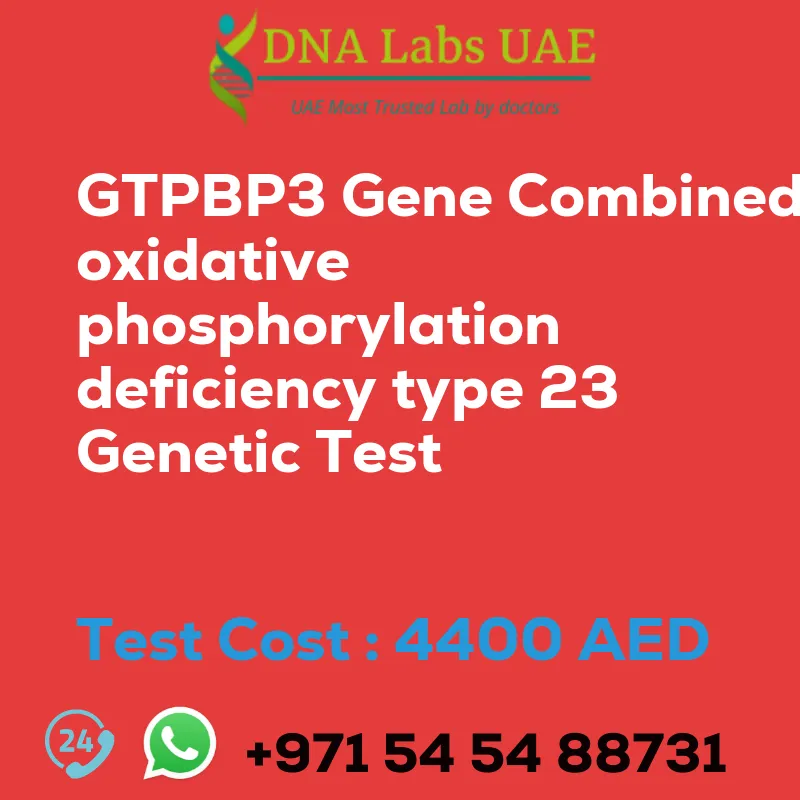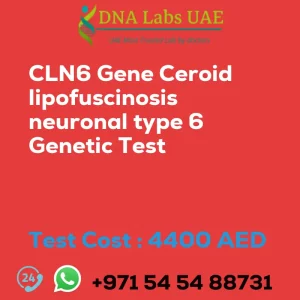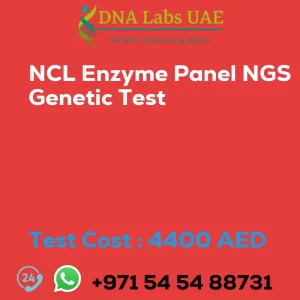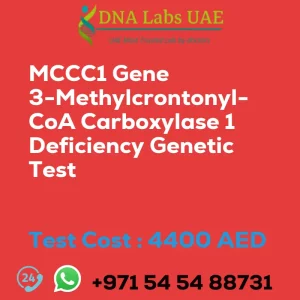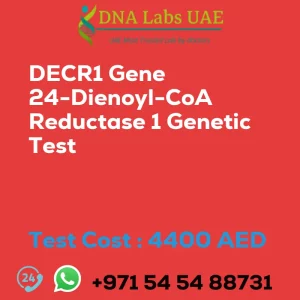GTPBP3 Gene Combined Oxidative Phosphorylation Deficiency Type 23 Genetic Test
Test Name: GTPBP3 Gene Combined Oxidative Phosphorylation Deficiency Type 23 Genetic Test
Components: Blood or Extracted DNA or One drop Blood on FTA Card
Price: 4400.0 AED
Report Delivery: 3 to 4 Weeks
Method: NGS Technology
Test Type: Metabolic Disorders
Doctor: General Physician
Test Department: Genetics
Pre Test Information: Clinical History of Patient who is going for GTPBP3 Gene Combined Oxidative Phosphorylation Deficiency Type 23 NGS Genetic DNA Test. A Genetic Counselling session to draw a pedigree chart of family members affected with Combined Oxidative Phosphorylation Deficiency Type 23.
Test Details
The GTPBP3 gene is associated with Combined Oxidative Phosphorylation Deficiency Type 23 (COXPD23), which is a rare genetic disorder that affects the mitochondria’s ability to produce energy through oxidative phosphorylation. This condition can lead to various symptoms, including muscle weakness, developmental delay, intellectual disability, and other neurological problems.
NGS Genetic Test, or Next-Generation Sequencing Genetic Test, is a technique used to analyze multiple genes simultaneously and identify genetic variations or mutations associated with specific disorders. In the case of COXPD23, an NGS genetic test can be performed to analyze the GTPBP3 gene for any mutations or variations that may be responsible for the condition.
This genetic test involves obtaining a sample of the patient’s DNA, usually through a blood sample or a cheek swab. The DNA is then sequenced using advanced sequencing technologies, which can identify any changes or abnormalities in the GTPBP3 gene. The results of the NGS genetic test can help confirm a diagnosis of COXPD23 and provide information about the specific genetic mutation involved.
Genetic testing can be useful for diagnosing rare genetic disorders like COXPD23, providing information about the inheritance pattern, and guiding treatment decisions. However, it is important to consult with a healthcare professional or a genetic counselor before undergoing genetic testing to understand the benefits, limitations, and potential implications of the test results.
| Test Name | GTPBP3 Gene Combined oxidative phosphorylation deficiency type 23 Genetic Test |
|---|---|
| Components | |
| Price | 4400.0 AED |
| Sample Condition | Blood or Extracted DNA or One drop Blood on FTA Card |
| Report Delivery | 3 to 4 Weeks |
| Method | NGS Technology |
| Test type | Metabolic Disorders |
| Doctor | General Physician |
| Test Department: | Genetics |
| Pre Test Information | Clinical History of Patient who is going for GTPBP3 Gene Combined oxidative phosphorylation deficiency type 23 NGS Genetic DNA Test A Genetic Counselling session to draw a pedigree chart of family members affected with Combined oxidative phosphorylation deficiency type 23 |
| Test Details |
The GTPBP3 gene is associated with Combined Oxidative Phosphorylation Deficiency Type 23 (COXPD23), which is a rare genetic disorder that affects the mitochondria’s ability to produce energy through oxidative phosphorylation. This condition can lead to various symptoms, including muscle weakness, developmental delay, intellectual disability, and other neurological problems. NGS Genetic Test, or Next-Generation Sequencing Genetic Test, is a technique used to analyze multiple genes simultaneously and identify genetic variations or mutations associated with specific disorders. In the case of COXPD23, an NGS genetic test can be performed to analyze the GTPBP3 gene for any mutations or variations that may be responsible for the condition. This genetic test involves obtaining a sample of the patient’s DNA, usually through a blood sample or a cheek swab. The DNA is then sequenced using advanced sequencing technologies, which can identify any changes or abnormalities in the GTPBP3 gene. The results of the NGS genetic test can help confirm a diagnosis of COXPD23 and provide information about the specific genetic mutation involved. Genetic testing can be useful for diagnosing rare genetic disorders like COXPD23, providing information about the inheritance pattern, and guiding treatment decisions. However, it is important to consult with a healthcare professional or a genetic counselor before undergoing genetic testing to understand the benefits, limitations, and potential implications of the test results. |

